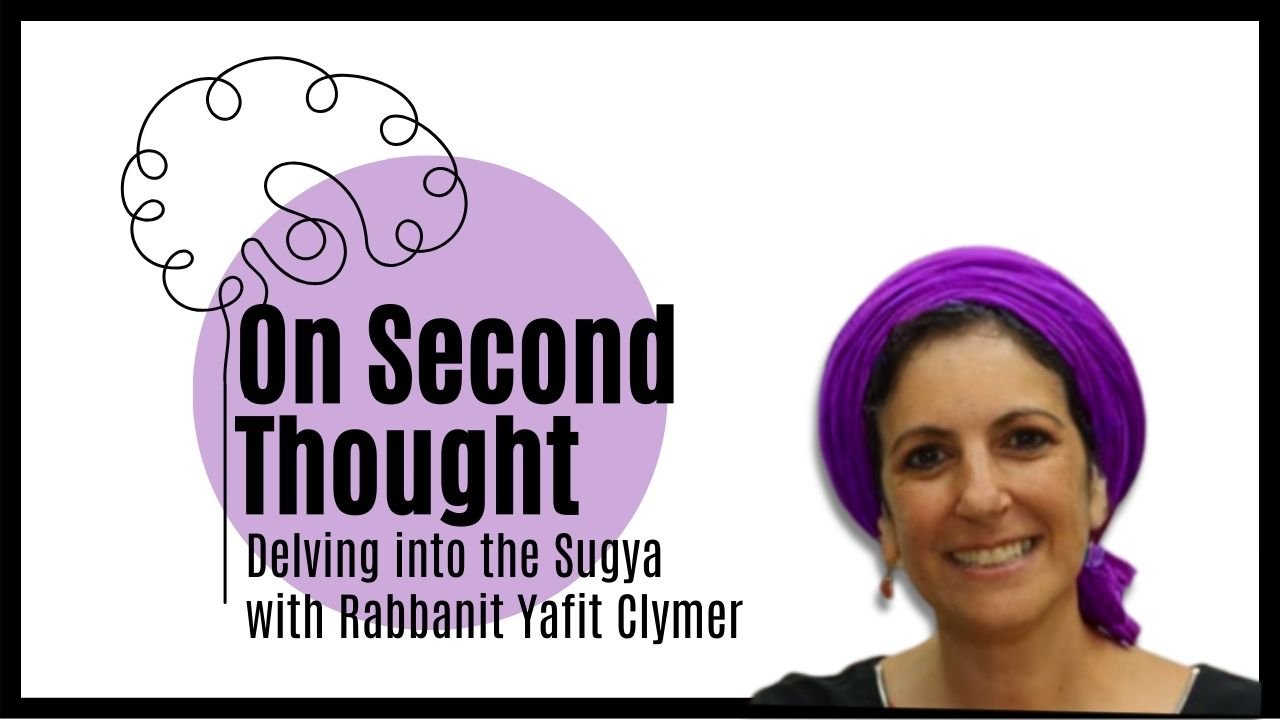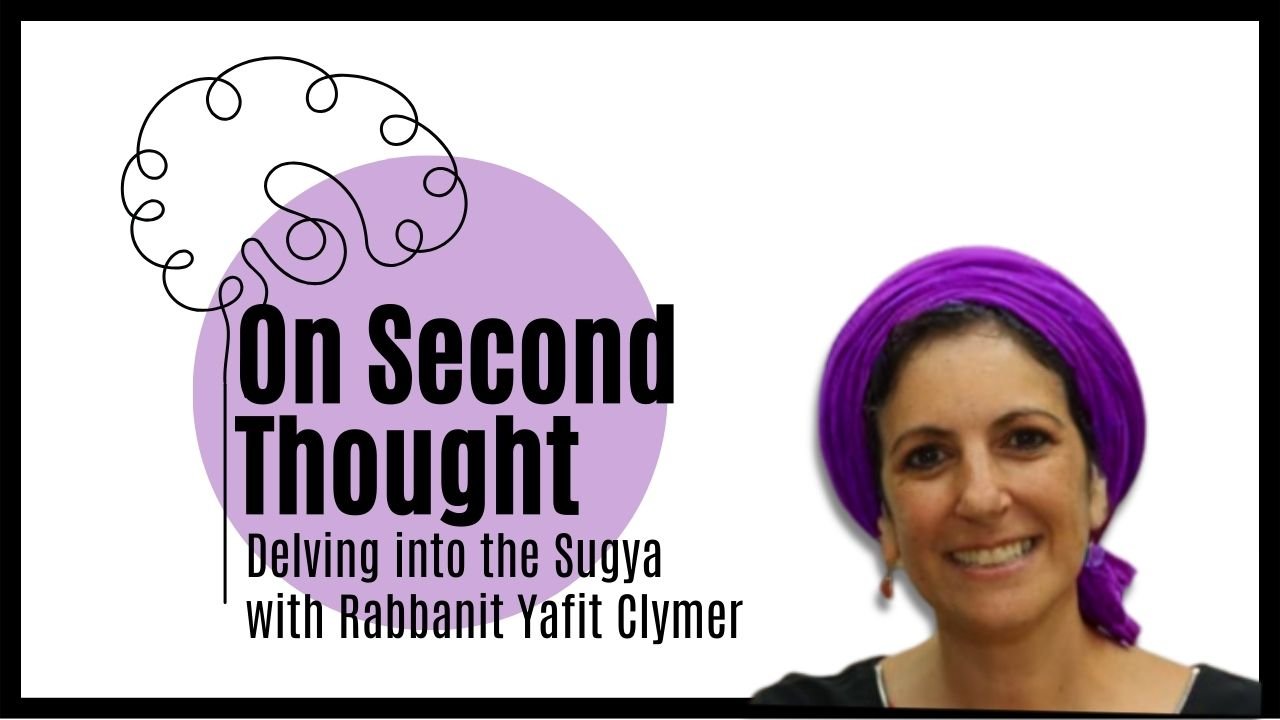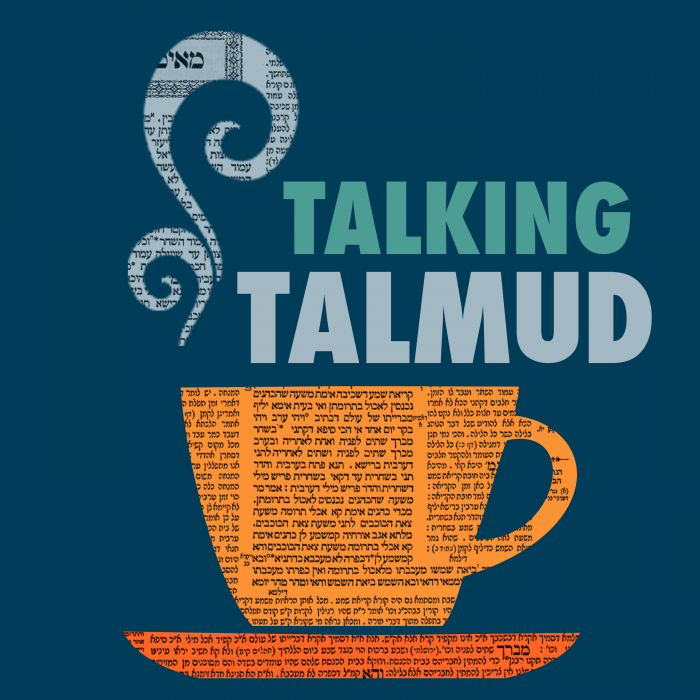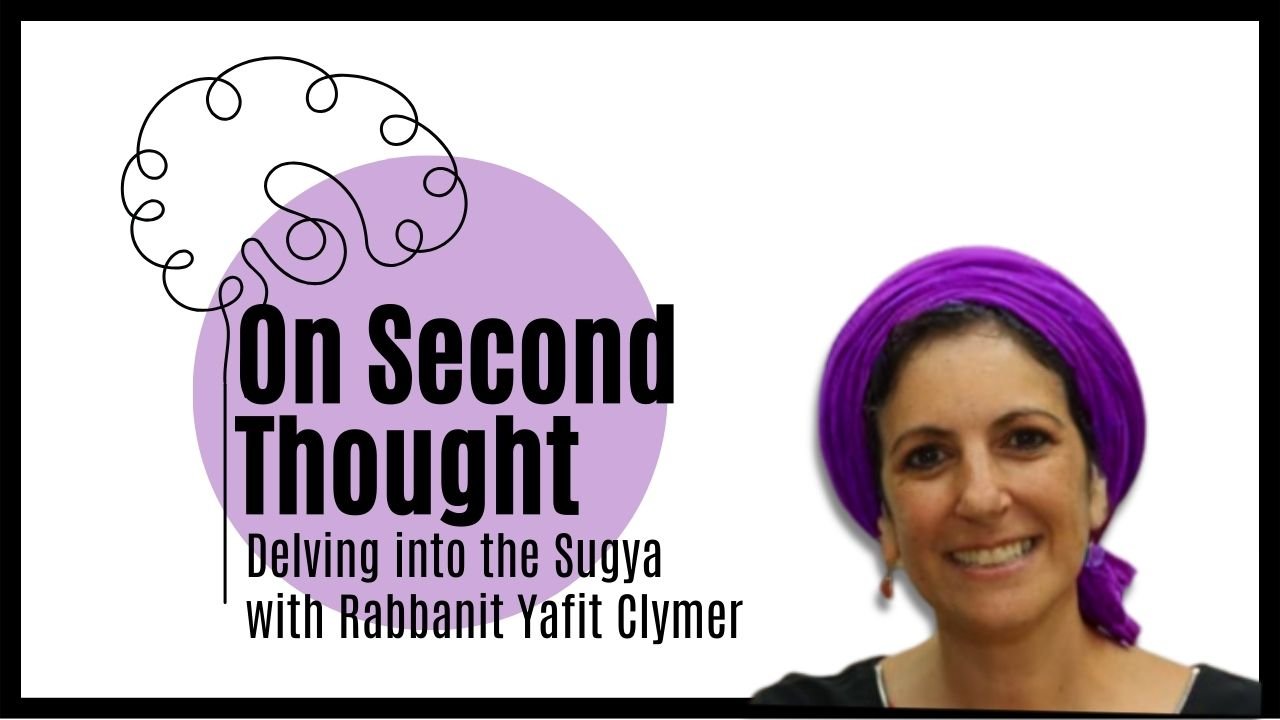Sanhedrin 49
תְּהֵא לוּטָא, וְלָא תְּהֵא לָאטָא.
Be the one who is cursed and not the one who curses, as a curse eventually returns to the one who curses.
אַתְיוּהּ לְיוֹאָב, דַּיְּינֵיהּ. אֲמַר לֵיהּ: מַאי טַעְמָא קְטַלְתֵּיהּ לְאַבְנֵר? אֲמַר לֵיהּ: גּוֹאֵל הַדָּם דַּעֲשָׂאֵל הֲוַאי. עֲשָׂאֵל רוֹדֵף הֲוָה. אֲמַר לֵיהּ: הָיָה לוֹ לְהַצִּילוֹ בְּאֶחָד מֵאֵבָרָיו.
The Gemara returns to discuss the incident of Joab: They brought Joab before Solomon, who judged him. Solomon said to Joab: What is the reason that you killed Abner? Joab said to him: I was the blood redeemer of the blood of Asahel; when Abner murdered my brother Asahel I killed him, in fulfillment of my duty as his blood redeemer. Solomon said to him: But Asahel was pursuing Abner with the intention of killing him, and therefore he had the status of a pursuer. Since Abner killed Asahel in an act of self-defense, you had no right to kill him as a redeemer of Asahel’s blood. Joab said to Solomon: Abner could have saved himself by wounding Asahel in one of his limbs. Having failed to do so, he was guilty of murder, and I was therefore entitled to kill him.
אֲמַר לֵיהּ: לָא יְכֵיל לֵיהּ. אֲמַר לֵיהּ: הַשְׁתָּא בְּדוֹפֶן חֲמִישִׁית כַּיוֵּן לֵיהּ, דִּכְתִיב ״וַיַּכֵּהוּ אַבְנֵר בְּאַחֲרֵי הַחֲנִית אֶל הַחֹמֶשׁ״, וְאָמַר רַבִּי יוֹחָנָן: בְּדוֹפֶן חֲמִישִׁית, בְּמָקוֹם שֶׁמָּרָה וְכָבֵד תְּלוּיִין בּוֹ. בְּאֶחָד מֵאֵבָרָיו לָא יְכֵיל לֵיהּ?
Solomon said to him: Abner was not able to injure Asahel, because he was running and could not aim with precision. Joab said to Solomon: Now Abner was able to aim and hit him precisely in the fifth rib, as it is written: “And Abner smote him with the butt end of the spear in the ḥomesh” (II Samuel 2:23), and Rabbi Yoḥanan says that this means that he hit him in the fifth rib, the place where the gallbladder and liver hang. If Abner could aim with precision at the fifth rib, could he not have successfully aimed at one of Asahel’s limbs?
אֲמַר לֵיהּ: נֵיזִיל אַבְנֵר, מַאי טַעְמָא קְטַלְתֵּיהּ לַעֲמָשָׂא? אֲמַר לֵיהּ: עֲמָשָׂא מוֹרֵד בַּמַּלְכוּת הֲוָה, דִּכְתִיב: ״וַיֹּאמֶר הַמֶּלֶךְ לַעֲמָשָׂא הַזְעֶק לִי אֶת אִישׁ יְהוּדָה שְׁלֹשֶׁת יָמִים וְגוֹ׳ וַיֵּלֶךְ עֲמָשָׂא לְהַזְעִיק אֶת יְהוּדָה וַיּוֹחֶר וְגוֹ׳״.
Solomon said to Joab: Set aside Abner, as you have presented a convincing argument that you are not liable for his death. But what is the reason you killed Amasa? Joab said to him: I killed Amasa in punishment for his having rebelled against the king, as it is written: “And the king said to Amasa: Muster to me the men of Judah within three days, and be you here present. And Amasa went to call the men of Judah, but he was later than the set time that he had assigned to him” (II Samuel 20:4–5).
אֲמַר לֵיהּ: עֲמָשָׂא ״אַכִּין״ וְ״רַקִּין״ דְּרַשׁ.
Solomon said to him: Amasa was not guilty of rebelling against the king because he interpreted the words akh and rak in a restrictive manner, and in that way he limited the king’s authority.
אַשְׁכְּחִינְהוּ דִּפְתִיחַ לְהוּ בְּמַסֶּכְתָּא. אֲמַר: כְּתִיב ״כׇּל אִישׁ אֲשֶׁר יַמְרֶה אֶת פִּיךָ וְלֹא יִשְׁמַע אֶת דְּבָרֶיךָ לְכֹל אֲשֶׁר תְּצַוֶּנּוּ יוּמָת״. יָכוֹל אֲפִילּוּ לְדִבְרֵי תוֹרָה? תַּלְמוּד לוֹמַר: ״רַק חֲזַק וֶאֱמָץ״.
How so? Amasa found the men of Judah starting to study a new tractate. He said to himself: It is written: “Any man who rebels against your commandment, and will not listen to your words in all that you command him, he shall be put to death” (Joshua 1:18), indicating that the king of Israel has unlimited power. Based on these words alone, one might have thought that the king must be obeyed even when that would lead to abstention from the study of the words of Torah. Therefore, that same verse states: “Only [rak] be strong and of a good courage.” The word “rak” is a restrictive term that serves to limit the king’s authority in a situation where obeying his command will minimalize the study of Torah. Consequently, Amasa was justified when he did not muster the men of Judah at the appointed time, and you had no right to kill him.
אֶלָּא, הָהוּא גַּבְרָא מוֹרֵד בַּמַּלְכוּת הֲוָה, דִּכְתִיב: ״וְהַשְּׁמֻעָה בָּאָה עַד יוֹאָב כִּי יוֹאָב נָטָה אַחֲרֵי אֲדֹנִיָּה וְאַחֲרֵי אַבְשָׁלוֹם לֹא נָטָה״.
Solomon continued: Rather, the opposite is true. That man, you, Joab, rebelled against the king, as it is written: “Then tidings came to Joab, for Joab had followed after Adonijah, though he had not followed after Absalom. And Joab fled to the tent of the Lord and caught hold of the horns of the altar” (I Kings 2:28). Joab followed Adonijah, thereby rebelling against Solomon, the lawful king.
מַאי ״לֹא נָטָה״? אָמַר רַב יְהוּדָה: שֶׁבִּיקֵּשׁ לִנְטוֹת וְלֹא נָטָה. וּמַאי טַעְמָא לָא נָטָה? אָמַר רַבִּי אֶלְעָזָר: עֲדַיִין לִיחְלוּחִית שֶׁל דָּוִד קַיֶּימֶת.
The Gemara asks: What does the verse mean to teach when it says that Joab did not follow Absalom? Rav Yehuda says: It serves to teach that Joab wanted to follow Absalom, but in practice he did not follow him. The Gemara asks: If he wanted to do so, what is the reason that Joab did not follow Absalom? Rabbi Elazar says: When Absalom rebelled against his father, David was still in full possession of his vitality, meaning he was still strong, and Joab feared him.
רַבִּי יוֹסֵי בְּרַבִּי חֲנִינָא אָמַר: עֲדַיִין אִיצְטַגְנִינֵי שֶׁל דָּוִד קַיָּימִין, דְּאָמַר רַב יְהוּדָה אָמַר רַב: אַרְבַּע מֵאוֹת יְלָדִים הָיוּ לוֹ לְדָוִד, כּוּלָּן בְּנֵי יְפַת תּוֹאַר הָיוּ, וּמְגַדְּלֵי בְלוֹרִית הָיוּ, וּמְהַלְּכִין בְּרָאשֵׁי הַגְּיָיסוֹת הָיוּ, וְהֵן הֵן בַּעֲלֵי אֶגְרוֹפִין שֶׁל דָּוִד.
Rabbi Yosei, son of Rabbi Ḥanina, says: David’s stars [itztagninei], the planetary influences that determined his fortune, still stood for him. As Rav Yehuda says that Rav says: David had four hundred children in his army, and all of them were sons of beautiful women taken captive from their gentile homes during war (see Deuteronomy 21:10–14), and they grew their hair in a gentile hair style, and they would go at the head of the troops, and they were the strong-arm enforcers of the house of David, on whose loyalty David’s monarchy relied. As long as David was supported by this force, Joab was afraid to challenge him.
וּפְלִיגָא דְּרַבִּי אַבָּא בַּר כָּהֲנָא, דְּאָמַר רַבִּי אַבָּא בַּר כָּהֲנָא: אִילְמָלֵא דָּוִד לֹא עָשָׂה יוֹאָב מִלְחָמָה, וְאִילְמָלֵא יוֹאָב לֹא עָסַק דָּוִד בַּתּוֹרָה. דִּכְתִיב: ״וַיְהִי דָוִד עֹשֶׂה מִשְׁפָּט וּצְדָקָה לְכׇל עַמּוֹ וְיוֹאָב בֶּן צְרוּיָה עַל הַצָּבָא״. מָה טַעַם ״דָוִד עֹשֶׂה מִשְׁפָּט וּצְדָקָה לְכׇל עַמּוֹ״? מִשּׁוּם דְּ״יוֹאָב עַל הַצָּבָא״. וּמָה טַעַם ״יוֹאָב עַל הַצָּבָא״? מִשּׁוּם דְּ״דָוִד עֹשֶׂה מִשְׁפָּט וּצְדָקָה לְכׇל עַמּוֹ״.
The Gemara notes: And those who view Joab in a negative light disagree with the opinion of Rabbi Abba bar Kahana, as Rabbi Abba bar Kahana says: Were it not for David, who studied Torah, Joab would not have been able to wage war successfully, and were it not for the military acumen of Joab, David would not have been able to study Torah. As it is written: “And David executed judgment and justice to all his people, and Joab, son of Zeruiah, was over the army” (II Samuel 8:15–16). What is the reason that David “executed judgment and justice to all his people”? He was able to do so because “Joab, son of Zeruiah, was over the army,” assisting him and fighting his battles. And what is the reason that “Joab, son of Zeruiah, was over the army”? He was able to do so because “David executed judgment and justice to all his people.”
״וַיֵּצֵא יוֹאָב מֵעִם דָּוִד וַיִּשְׁלַח מַלְאָכִים אַחֲרֵי אַבְנֵר וַיָּשִׁבוּ אֹתוֹ מִבּוֹר הַסִּרָה״. מַאי ״בּוֹר הַסִּירָה״? אָמַר רַבִּי אַבָּא בַּר כָּהֲנָא: בּוֹר וְסִירָה גָּרְמוּ לוֹ לְאַבְנֵר שֶׁיֵּהָרֵג.
§ The verse states: “And Joab went out from David, and sent messengers after Abner, and they brought him back from Bor Sirah” (II Samuel 3:26). The Gemara asks: What is the meaning of the name Bor Sirah? Rabbi Abba bar Kahana says: A well [bor] and a thorn [vesira] caused Abner to be killed. Abner became liable to be killed when he failed to take advantage of two opportunities to bring about a reconciliation between King Saul and David. First, when David cut off a corner of Saul’s robe after he entered a cave in order to relieve himself, and second, when David found Saul sleeping and took the jug of water and the spear from next to his head. Rather than tell Saul that David could have killed him and refrained from doing so, Abner suggested to Saul that his robe may have been torn by a thornbush and that his jug of water may have been taken by one of his own men. These two incidents are alluded to by the words bor, well, i.e., jug of water, and sira, thornbush.
״וַיַּטֵּהוּ יוֹאָב אֶל תּוֹךְ הַשַּׁעַר לְדַבֵּר אִתּוֹ בַּשֶּׁלִי״. אָמַר רַבִּי יוֹחָנָן: שֶׁדָּנוֹ דִּין סַנְהֶדְרִי. אֲמַר לֵיהּ: מַאי טַעְמָא קְטַלְתֵּיהּ לַעֲשָׂאֵל? עֲשָׂאֵל רוֹדֵף הָיָה. הָיָה לְךָ לְהַצִּילוֹ בְּאֶחָד מֵאֵבָרָיו! לָא יְכֵילִי לֵיהּ. הַשְׁתָּא בְּדוֹפֶן חֲמִישִׁית כַּוֵּונְתְּ לֵיהּ, בְּאֶחָד מֵאֵבָרָיו לָא יְכֵלְתְּ לֵיהּ?
The verse states: “And Joab took him aside in the gate to speak with him quietly” (II Samuel 3:27). Rabbi Yoḥanan says: Joab judged Abner according to the halakha of the Sanhedrin, which would sit in judgment by the gate of the city. How so? Joab said to Abner: What is the reason that you killed Asahel? Abner said to him: Asahel was pursuing me with the intention to kill me, and therefore he had the status of a pursuer, whom I had the right to kill in self-defense. Joab said to Abner: Even so, you could have saved yourself by wounding one of his limbs. Abner replied: I was not able to do so as I was running and could not aim with precision. Joab said to him: Now seeing that you were able to aim and hit him precisely in the fifth rib, could you not have successfully aimed at one of his limbs?
״לְדַבֵּר אִתּוֹ בַּשֶּׁלִי״, אָמַר רַב יְהוּדָה אָמַר רַב: עַל עִיסְקֵי שָׁלוּ. ״וַיַּכֵּהוּ שָׁם אֶל הַחֹמֶשׁ״, אָמַר רַבִּי יוֹחָנָן: בְּדוֹפֶן חֲמִישִׁית, מָקוֹם שֶׁמָּרָה וְכָבֵד תְּלוּיִין בּוֹ.
The Gemara asks: What is the meaning of “to speak with him quietly [basheli]”? Rav Yehuda says that Rav says: He took him aside to speak to him by way of deception [shalu]. As for what is stated: “And Abner smote him with the butt end of the spear in the ḥomesh” (II Samuel 2:23), Rabbi Yoḥanan says: He hit him in the fifth [ḥamishit] rib, the place where the gallbladder and liver hang.
״וְהֵשִׁיב ה׳ אֶת דָּמוֹ עַל רֹאשׁוֹ אֲשֶׁר פָּגַע בִּשְׁנֵי אֲנָשִׁים צַדִּקִים טוֹבִים מִמֶּנּוּ״. ״טוֹבִים״ – שֶׁהָיוּ דּוֹרְשִׁין ״אַכִּין״ וְ״רַקִּין״, וְהוּא לֹא דָּרַשׁ. ״צַדִּיקִים״ – שֶׁהֵן בַּפֶּה וְלֹא עָשׂוּ, וְהוּא בְּאִיגֶּרֶת עָשָׂה.
§ The verse states that Solomon said to Benaiah, son of Jehoiada, concerning Joab: “And the Lord shall return the blood upon his own head, for he fell upon two men more righteous and better than he” (I Kings 2:32). The Gemara explains: Amasa and Abner were “better” that Joab, as they interpreted the words akh and rak in a restrictive manner that limited the king’s authority, while he did not interpret them in that way, demonstrating that they were greater than him in Torah. Amasa and Abner were also “more righteous” than Joab, as they both received oral instructions directly from Saul to slay the priests of Nov and they did not do so, whereas Joab was instructed by David in a letter to kill Uriah and he did so.
״וַעֲמָשָׂא לֹא נִשְׁמַר בַּחֶרֶב אֲשֶׁר בְּיַד יוֹאָב״. אָמַר רַב: שֶׁלֹּא חֲשָׁדוֹ.
The verse states: “But Amasa took no heed of the sword in Joab’s hand” (II Samuel 20:10). Rav says: Amasa took no heed of the sword because he did not suspect that Joab was capable of murdering him.
״וַיִּקָּבֵר בְּבֵיתוֹ בַּמִּדְבָּר״. אַטּוּ בֵּיתוֹ מִדְבָּר הוּא? אָמַר רַב יְהוּדָה אָמַר רַב: כַּמִּדְבָּר, מָה מִדְבָּר מוּפְקָר לַכֹּל, אַף בֵּיתוֹ שֶׁל יוֹאָב מוּפְקָר לַכֹּל. דָּבָר אַחֵר: כַּמִּדְבָּר, מָה מִדְבָּר מְנוּקֶּה מִגָּזֵל וַעֲרָיוֹת, אַף בֵּיתוֹ שֶׁל יוֹאָב מְנוּקֶּה מִגָּזֵל וַעֲרָיוֹת. ״וְיוֹאָב יְחַיֶּה אֶת שְׁאָר הָעִיר״. אָמַר רַב יְהוּדָה: אֲפִילּוּ מוּנִינֵי וְצַחֲנָתָא טָעֵים פָּרֵיס לְהוּ.
The verse states with regard to Joab: “And he was buried in his own house, in the wilderness” (I Kings 2:34). The Gemara asks: Is that to say that Joab’s house was a wilderness? Rav Yehuda says that Rav says: Joab’s house was like the wilderness; just as the wilderness is freely open to all, so too, Joab’s house was freely open to all, as he generously opened his house to the poor and made them feel like members of the household. Alternatively, Joab’s house was like the wilderness; just as the wilderness is clean of theft and sexual immorality, as it is uninhabited, so too, Joab’s house was clean of theft and sexual immorality, owing to his righteousness. As for the verse: “And Joab kept alive the rest of the city” (I Chronicles 11:8), Rav Yehuda says: Not only would Joab feed the poor, but he would even give them treats of types of small fish so they would lack for nothing.
הֲדַרַן עֲלָךְ נִגְמַר הַדִּין
MISHNA: Four types of the death penalty were given over to the court, with which those who committed certain transgressions are executed. They are, in descending order of severity: Stoning, burning, killing by decapitation, and strangulation. Rabbi Shimon says: They are, in descending order of severity: Burning, stoning, strangulation, and killing. This execution, described in the previous chapter, is referring to the mitzva of those who are stoned, i.e., to the process of execution by stoning.
מַתְנִי׳ אַרְבַּע מִיתוֹת נִמְסְרוּ לְבֵית דִּין: סְקִילָה, שְׂרֵיפָה, הֶרֶג, וָחֶנֶק. רַבִּי שִׁמְעוֹן אוֹמֵר: שְׂרֵיפָה, סְקִילָה, חֶנֶק, וָהֶרֶג. זוֹ מִצְוַת הַנִּסְקָלִין.
GEMARA: Rava says that Rav Seḥora says that Rav Huna says: Wherever the Sages taught a halakha by means of a list, there is no significance to the order of their list, except for in the mishna that discusses the seven abrasive substances, where the order is significant.
גְּמָ׳ אָמַר רָבָא אָמַר רַב סְחוֹרָא אָמַר רַב הוּנָא: כׇּל מָקוֹם שֶׁשָּׁנוּ חֲכָמִים דֶּרֶךְ מִנְיָין, אֵין מוּקְדָּם וּמְאוּחָר, חוּץ מִשִּׁבְעָה סַמָּנִין.
As we learned in a mishna (Nidda 61b): One applies seven abrasive substances to the stain found on a woman’s clothing in order to find out whether the stain is from menstrual blood, and therefore ritually impure, or whether it is another type of stain, and therefore pure. These substances are: Bland spittle, which is the spittle of someone who has not yet tasted anything in the morning; moisture of grits, which is the spittle of one who has chewed the grits of beans; urine; natron; lye [borit]; Kimolian earth [kimuleya]; and potash. If the stain disappears as a result of the application of all of these substances, the stain is considered to have been from blood.
דִּתְנַן: שִׁבְעָה סַמָּנִין מַעֲבִירִין עַל הַכֶּתֶם – רוֹק תָּפֵל, וּמֵי גְרִיסִין, וּמֵי רַגְלַיִם, וְנֶתֶר, וּבוֹרִית, קִמוֹלְיָא, וְאַשְׁלָךְ.
And it is taught in the latter clause of that mishna that the order of the substances is essential, as it states: If one applied them not in the order prescribed for them, or applied all seven of them at once, he has done nothing; the laundering has not been effective.
וְקָתָנֵי סֵיפָא: הֶעֱבִירָן שֶׁלֹּא כְּסִידְרָן, אוֹ שֶׁהֶעֱבִירָן שִׁבְעָתָן כְּאֶחָד – לֹא עָשָׂה וְלֹא כְלוּם.
Rav Pappa the elder says in the name of Rav: The four types of the death penalty are also taught in order. This is apparent from the fact that Rabbi Shimon disagrees with the first order; conclude from it that it is taught in an exact order. The Gemara adds: And the other Sage, Rav Huna, does not include this mishna among those in which the order is significant, as he is not speaking of mishnayot where there is a dispute with regard to the correct order.
רַב פָּפָּא סָבָא מִשְּׁמֵיהּ דְּרַב אָמַר: אַף אַרְבַּע מִיתוֹת. מִדְּקָא מִפְּלִיג רַבִּי שִׁמְעוֹן, שְׁמַע מִינַּהּ דַּוְקָא קָתָנֵי. וְאִידָּךְ, בִּפְלוּגְתָּא לָא קָא מַיְירֵי.
Rav Pappa says: The order of the service in the Temple on the Day of Atonement, Yom Kippur, is also taught in its proper order, as we learned in a mishna (Yoma 60a): With regard to all actions performed in the context of the service of Yom Kippur, which are stated in the Mishna, as in the Torah, in order, the halakha is: If the High Priest performed one action before another, i.e., if he diverged from the order that is written, it is as though he has done nothing.
רַב פָּפָּא אָמַר: אַף סֵדֶר יוֹמָא, דִּתְנַן: כׇּל מַעֲשֵׂה יוֹם הַכִּפּוּרִים הָאֲמוּרִים עַל הַסֵּדֶר, אִם הִקְדִּים מַעֲשֶׂה לַחֲבֵירוֹ – לֹא עָשָׂה וְלֹא כְלוּם.
And the other Sage, Rav Huna, does not include this mishna because that is merely a stringency. Although a change in the order invalidates the Yom Kippur service, this is not due to the importance of some rites relative to others, but because this order was established by the Torah.
וְאִידָּךְ, הָהוּא חוּמְרָא בְּעָלְמָא.
Rav Huna, son of Rav Yehoshua, says: The order of the daily offering, described in the mishna at the end of tractate Tamid (33b), is also essential; as it is taught with regard to it: This is the order of the daily offering, indicating that it should be performed in exactly that order. And the other Sage, Rav Huna, does not include this mishna, as that requirement is merely for the mitzva. In other words, it is preferable that the offering be sacrificed in that order, but it is not disqualified if one deviates from that order.
רַב הוּנָא בְּרֵיהּ דְּרַב יְהוֹשֻׁעַ אָמַר: אַף סֵדֶר תָּמִיד, דְּקָתָנֵי עֲלַהּ ״זֶהוּ סֵדֶר תָּמִיד״. וְאִידָּךְ – הָהוּא לְמִצְוָה בְּעָלְמָא.
And Rav Huna’s principle excludes the mitzva of the ritual through which a man whose married brother dies childless [yavam] frees his late brother’s wife [yevama] of her levirate bonds [ḥalitza]; i.e., it teaches that the order of that ceremony is not essential. As we learned in a mishna (Yevamot 106b): The mitzva of ḥalitza is performed in this manner: The yavam and his yevama come before the court, and the judges of the court offer him advice that is appropriate for him as to whether to enter levirate marriage or to perform ḥalitza, as it is stated: “And the elders of his city shall call him and speak to him” (Deuteronomy 25:8).
וּלְאַפּוֹקֵי מִמִּצְוַת חֲלִיצָה, דִּתְנַן: מִצְוַת חֲלִיצָה – בָּא הוּא וִיבִמְתּוֹ לִפְנֵי בֵּית דִּין, הָיוּ נוֹתְנִין לוֹ עֵצָה הַהוֹגֶנֶת לוֹ, שֶׁנֶּאֱמַר: ״וְקָרְאוּ לוֹ זִקְנֵי עִירוֹ וְדִבְּרוּ אֵלָיו״.
And if they decide to perform ḥalitza, she says: “My brother-in-law refused to establish a name for his brother in Israel, he did not wish to consummate the levirate marriage” (Deuteronomy 25:7), and afterward he says: “I do not wish to take her” (Deuteronomy 25:8). And they would say these statements in the sacred tongue, Hebrew.
וְהִיא אוֹמֶרֶת: ״מֵאֵן יְבָמִי וְגוֹ׳״, וְהוּא אוֹמֵר: ״לֹא חָפַצְתִּי לְקַחְתָּהּ״. וּבִלְשׁוֹן הַקֹּדֶשׁ הָיוּ אוֹמְרִין.
The verse states: “His yevama shall approach him, before the elders, and remove his shoe from on his foot and spit before him” (Deuteronomy 25:9). Accordingly, she removes his shoe and she spits before him a quantity of spittle that is visible to the judges. “And she shall respond and say: So shall it be done to the man who does not build his brother’s house. And his name shall be called in Israel: The house of he who had his shoe removed” (Deuteronomy 25:9–10).
וְנִגְּשָׁה יְבִמְתּוֹ אֵלָיו לְעֵינֵי הַזְּקֵנִים וְחָלְצָה נַעֲלוֹ וְיָרְקָה בְּפָנָיו – רוֹק הַנִּרְאֶה לַדַּיָּינִין. ״וְעָנְתָה וְאָמְרָה כָּכָה יֵעָשֶׂה לְאִישׁ וְגוֹ׳ וְנִקְרָא שְׁמוֹ בְּיִשְׂרָאֵל וְגוֹ׳״.
And Rav Yehuda says that this is the correct order for the mitzva of ḥalitza: She recites the sentence beginning with “My brother-in-law refused” (Deuteronomy 25:7), and afterward he recites “I do not wish to take her” (Deuteronomy 25:8). Then she removes the shoe, and spits, and recites: “So shall it be done to the man who does not build his brother’s house” (Deuteronomy 25:9).
וְאָמַר רַב יְהוּדָה: מִצְוַת חֲלִיצָה – קוֹרְאָה וְקוֹרֵא, חוֹלֶצֶת וְרוֹקֶקֶת, וְקוֹרְאָה.
And we discussed it: What is Rav Yehuda teaching us? This is already stated in the mishna. The answer is that this is what Rav Yehuda teaches us: It is a mitzva to perform ḥalitza like this, i.e., this is the proper order, but if one switched the order we have no problem with it; the ḥalitza is still valid, as the order of the ritual is not essential. This is also taught in a baraita: Whether one performed the removal of the shoe before the spitting, or the spitting before the removal of the shoe, what she did is done, i.e., the ḥalitza is valid.
וְהָוֵינַן בַּהּ: מַאי קָא מַשְׁמַע לַן? מַתְנִיתִין הִיא! הָא קָא מַשְׁמַע לַן: מִצְוָה הָכִי, וְאִי אָפֵיךְ – לֵית לַן בַּהּ. תַּנְיָא נָמֵי הָכִי: בֵּין שֶׁהִקְדִּים חֲלִיצָה לִרְקִיקָה, אוֹ רְקִיקָה לַחֲלִיצָה – מַה שֶּׁעָשָׂה עָשׂוּי.
And Rav Huna’s principle also excludes that which we learned in a mishna (Yoma 71b): The High Priest serves, i.e., performs the Temple service, wearing eight garments, and the ordinary priest performs the Temple service wearing four. An ordinary priest performs the Temple service in a tunic, in trousers, in a mitre, and in a belt. The High Priest adds another four garments beyond those worn by the ordinary priest: A breastplate, and an ephod, and a robe, and a frontplate. The order listed in this mishna indicates that the tunic was put on first.
וּלְאַפּוֹקֵי מֵהָא דִּתְנַן: כֹּהֵן גָּדוֹל מְשַׁמֵּשׁ בִּשְׁמוֹנָה כֵּלִים, וְהֶדְיוֹט בְּאַרְבָּעָה. בִּכְתוֹנֶת, בְּמִכְנָסַיִם, בְּמִצְנֶפֶת, וְאַבְנֵט. מוֹסִיף עֲלֵיהֶן כֹּהֵן גָּדוֹל: חוֹשֶׁן וְאֵפוֹד וּמְעִיל וְצִיץ.
And it is taught in a baraita: From where is it derived that nothing precedes the donning of the trousers when the priest dresses? As it is stated: “He shall wear a sacred tunic of linen; and trousers of linen shall be on his flesh” (Leviticus 16:4). This indicates that the trousers come first, as they are worn directly on the flesh, proving that the list in the mishna is not in accordance with the order in which the priests dressed.
וְתַנְיָא: מִנַּיִן שֶׁלֹּא יְהֵא דָּבָר קוֹדֵם לַמִּכְנָסַיִם? שֶׁנֶּאֱמַר: ״וּמִכְנְסֵי בַד יִהְיוּ עַל בְּשָׂרוֹ״.
The Gemara asks: But if so, what is the reason the tanna mentions the tunic first? The Gemara answers: Because the verse mentions it first. The Gemara asks: And what is the reason the verse mentions it first? The Gemara answers: Because it covers his entire body, the Torah prefers to mention it first.
וְתַנָּא, מַאי טַעְמָא אַקְדְּמֵיהּ לִכְתוֹנֶת? מִשּׁוּם דְּאַקְדְּמֵיהּ קְרָא. וּקְרָא, מַאי טַעְמָא אַקְדְּמֵיהּ? מִשּׁוּם דִּמְכַסְּיָא כּוּלֵּהּ גּוּפֵיהּ, עֲדִיפָא לֵיהּ.
§ The mishna states the types of the death penalty in descending order of severity: Stoning, burning, killing by decapitation, and strangulation. The Gemara discusses the basis for this order. Stoning is considered more severe than burning, as stoning is meted out to one who blasphemes, i.e., one who curses God, and to one who worships idols. For what reason is the severity of these transgressions considered greater than others? Because the transgressor undermines the fundamental tenets of Judaism.
סְקִילָה שְׂרֵיפָה כּוּ׳. סְקִילָה חֲמוּרָה מִשְּׂרֵיפָה, שֶׁכֵּן נִיתְּנָה לִמְגַדֵּף וּלְעוֹבֵד עֲבוֹדָה זָרָה. מַאי חוּמְרָא? שֶׁכֵּן פּוֹשֵׁט יָדוֹ בָּעִיקָּר.
The Gemara raises an objection: On the contrary; burning is more severe than stoning, as it is meted out to a priest’s daughter who committed adultery (see Leviticus 21:9). And for what reason is the severity of this transgression considered greater than others? Because through her sin she profanes not only herself but her father as well.
אַדְּרַבָּה: שְׂרֵיפָה חֲמוּרָה, שֶׁכֵּן נִיתְּנָה לְבַת כֹּהֵן שֶׁזִּינְּתָה. וּמַאי חוּמְרָא? שֶׁכֵּן מְחַלֶּלֶת אֶת אָבִיהָ.

























